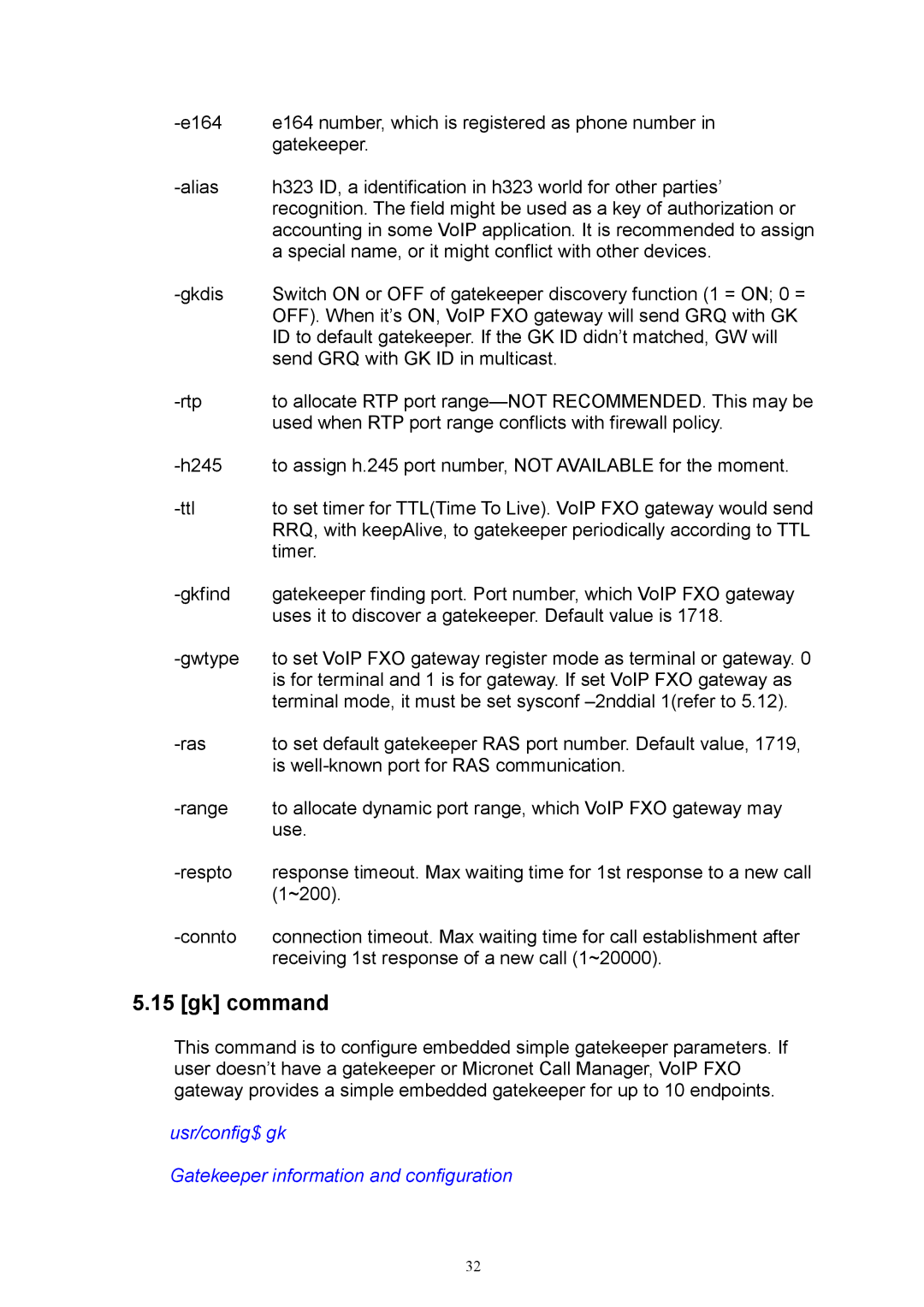e164 number, which is registered as phone number in | |
| gatekeeper. |
h323 ID, a identification in h323 world for other parties’ | |
| recognition. The field might be used as a key of authorization or |
| accounting in some VoIP application. It is recommended to assign |
| a special name, or it might conflict with other devices. |
Switch ON or OFF of gatekeeper discovery function (1 = ON; 0 = | |
| OFF). When it’s ON, VoIP FXO gateway will send GRQ with GK |
| ID to default gatekeeper. If the GK ID didn’t matched, GW will |
| send GRQ with GK ID in multicast. |
to allocate RTP port | |
| used when RTP port range conflicts with firewall policy. |
to assign h.245 port number, NOT AVAILABLE for the moment. | |
to set timer for TTL(Time To Live). VoIP FXO gateway would send | |
| RRQ, with keepAlive, to gatekeeper periodically according to TTL |
| timer. |
gatekeeper finding port. Port number, which VoIP FXO gateway | |
| uses it to discover a gatekeeper. Default value is 1718. |
to set VoIP FXO gateway register mode as terminal or gateway. 0 | |
| is for terminal and 1 is for gateway. If set VoIP FXO gateway as |
| terminal mode, it must be set sysconf |
to set default gatekeeper RAS port number. Default value, 1719, | |
| is |
to allocate dynamic port range, which VoIP FXO gateway may | |
| use. |
response timeout. Max waiting time for 1st response to a new call | |
| (1~200). |
connection timeout. Max waiting time for call establishment after | |
| receiving 1st response of a new call (1~20000). |
5.15 [gk] command
This command is to configure embedded simple gatekeeper parameters. If user doesn’t have a gatekeeper or Micronet Call Manager, VoIP FXO gateway provides a simple embedded gatekeeper for up to 10 endpoints.
usr/config$ gk
Gatekeeper information and configuration
32
